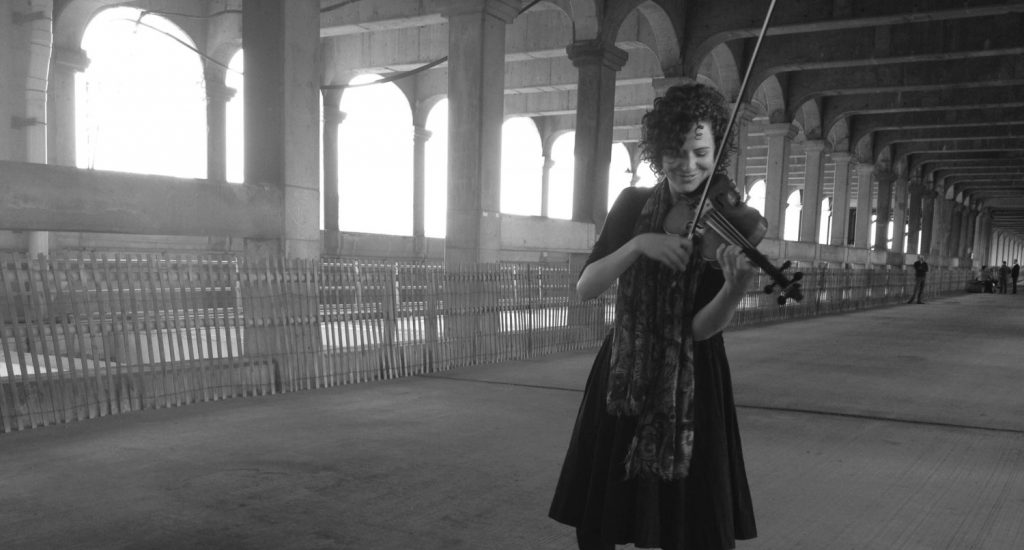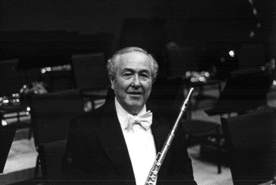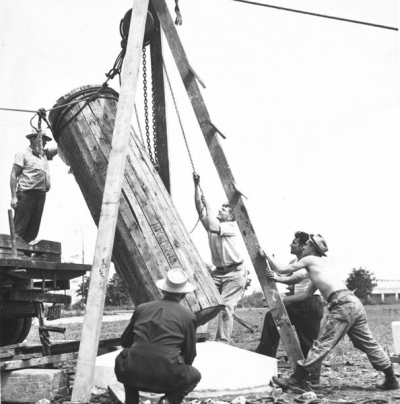by Jarrett Hoffman

Filling your appetite for live music today are violinist Ariel Clayton Karas and pianist Marina Kerze, who will perform a program of French, Spanish, and Armenian music tonight at 8 on the Silver Hall Series from the Maltz — streamed, with no audience present.
Local audiences might be familiar with Karas as director of Classical Revolution Cleveland and founder of Opus 216. That ensemble is known for its stylistic versatility — classical, jazz, improvisations, and all kinds of pop, from The Beatles to The Legend of Zelda and Game of Thrones.
Right up their alley was a recent project with vocalist Ashley Nemeh: “Elvis Presley Sessions.” Head to Opus 216’s Facebook page for a fun music-video medley of Jailhouse Rock, Can’t Help Falling In Love, and of course, Hound Dog. (Facebook is also a good resource to look out for Opus 216’s Front Yard Concerts.)
Check out this 2017 Q&A from Cleveland.com to learn more about Karas, including her background in Mesquite, Texas (she was “the orchestra geek” and editor-in-chief of her high school paper, while many of her classmates, she said, were more into squirrel hunting). On a more serious note, she spoke to Ideastream in March about the start of the pandemic and its effect on her work as a freelancer.
Also on the docket today: re-broadcasts from The Cleveland Orchestra (a collage of movements from the symphonies of Shostakovich, Prokofiev, Tchaikovsky, and Brahms) and the Met Opera (Manon Lescaut). Check our Concert Listings for more details.
TODAY’S ALMANAC:

Soon after completing his studies at Eastman and then at Curtis, Baker took up post as second flute in The Cleveland Orchestra from 1937-41. Short stints as principal flute with the Pittsburgh and Chicago Symphonies followed before he found a home for eighteen years in that position with the New York Philharmonic.
His powerful legacy extends from the orchestral side of the field to chamber music — he was a founding member of the Bach Aria Group — and pedagogy. He taught at Curtis, Juilliard, and Carnegie Mellon, and his many famous students include The Cleveland Orchestra’s own Joshua Smith and Mary Kay Fink. Baker’s dedication to teaching continued until the week he died at age 87 in 2003.
Among his many recordings, here’s a video of Baker playing the first movement of Bach’s Fifth Brandenburg Concerto with David Nadien on violin, Leonard Bernstein on piano, and the New York Philharmonic.

Sealed inside are over 100 objects that, it was decided, captured the spirit of the time — “including a pack of cigarettes, a 35mm camera, a safety razor, children’s toys, money, millions of pages of text on a microfilm, seed samples from common crops such as wheat, corn and cotton, and even handwritten messages from figures such as Albert Einstein and Thomas Mann,” according to the Bureau International des Expositions.
That raises a question that’s maybe a little fun, maybe a little sad: what objects would you bury to represent these times?



